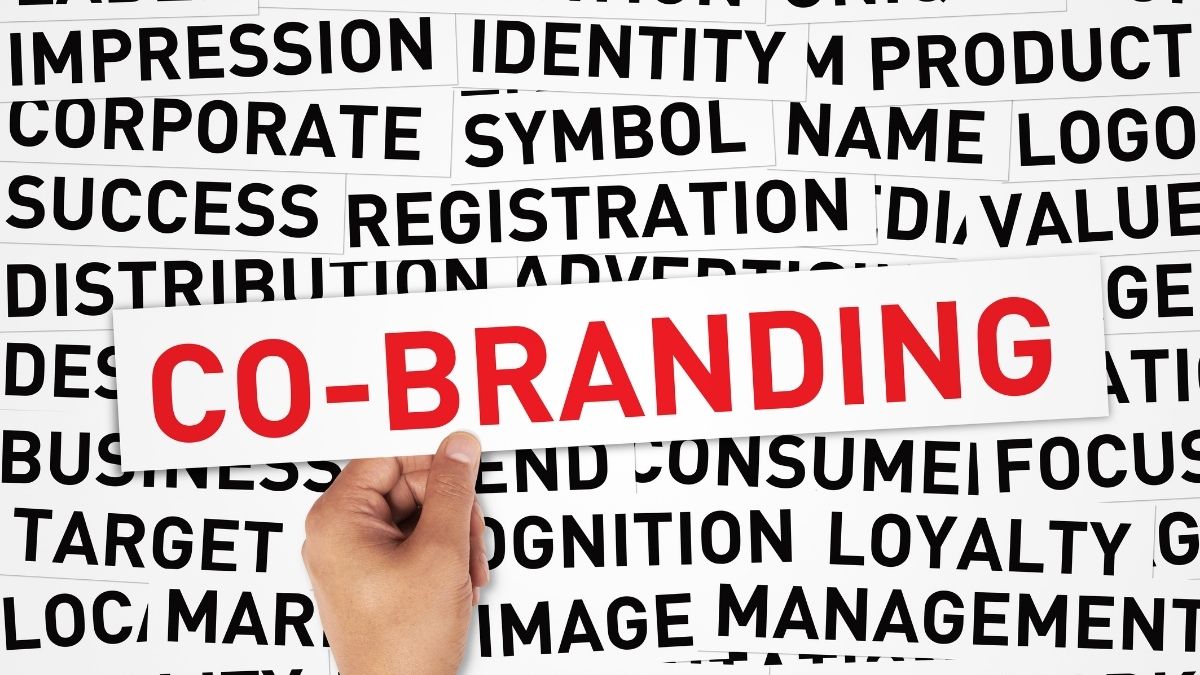
When it comes to growing a business, there’s always another goal to achieve after you’ve accomplished the previous one. Maintaining sustainable growth, securing future rounds of funding, and connecting with a larger audience are all top-of-mind priorities for every entrepreneur.
But how do you go about achieving these objectives? Especially when you’re up against direct competitors who have had years of market dominance.
One method is to take advantage of co-branding partnerships and campaigns with the top branding agencies.
In this blog, we’ll go over the five advantages of co-branding campaigns and offer tips on how to spot the right opportunities for your company. Let’s get started without further ado.
Why Does Co-Branding Help Startups?
Co-branding is a marketing strategy that involves two or more brands working together. It’s a chance to generate buzz on social media, drive traffic to both brands’ websites, and raise brand awareness.
For a variety of reasons, a co-branding campaign can set your company apart from the competition. Here are five of the most important ones:
1. Improve your brand’s reputation
Whether or not your startup has just launched, it’s critical to maintain a strong brand reputation and gain your audience’s trust. At the end of the day, prospective customers will not convert if they do not trust your brand or the quality of your products.
You can tap into a brand’s built-in audience and earn their trust more easily by partnering with one that has a loyal and engaged customer base.
The other brand is essentially proving to their audience that your startup is credible, trustworthy, and worth their investment through this collaboration. In addition, because co-branding campaigns are mutually beneficial, your brand partner(s) can benefit as well.
Let’s say you’ve been successful in engaging a younger customer demographic, and your brand partner wants to reach out to this demographic. The other brand is better able to connect with that audience in an authentic and meaningful way by campaigning alongside your startup.
2. Improve prospects’ and customers’ user experiences
What are the concerns and reservations of your target audience? Is there a yet-to-be-developed product or service that could improve and enhance their user experience?
Co-branding campaigns can help solve logistical issues and improve the overall user experience, in addition to increasing traffic and engagement. MasterCard partnered with Apple to give its users access to Apple Pay, which is a prime example of this type of campaign.
MasterCard not only distinguished itself from other credit card companies by partnering with Apple, but both companies benefited from providing users with a more convenient way to purchase goods.
Co-branded products and services, whether large or small, can increase the perceived value of your startup in the eyes of prospects and customers.
3. Give your startup a leg up on the competition
The novelty factor is a key reason why this type of marketing is so effective, regardless of what type of co-branding campaign you plan to run like a startup. Because these kinds of collaborations don’t happen very often, they catch the attention of a lot of people.
For example, in 2018, Coors Light collaborated with National Geographic on a campaign that reached 10.5 million people and resulted in a 6.8% increase in brand favorability. While this pairing may appear to be haphazard, it was carefully planned and executed.
This campaign, in particular, demonstrates that thinking outside the box, forming unconventional partnerships, and launching unique campaigns can reap significant benefits for brands. It’s a great way for startups to differentiate themselves from their competitors and engage their audience.
4. Boost participation across all platforms
Co-branding campaigns can take place on any and all platforms, which is an added benefit of these partnerships when it comes to engaging the audience. So, if you wanted to co-launch an Instagram contest, you could market it exclusively on Instagram or on a variety of other platforms.
Assume you’re working with a brand that has a high level of engagement on Instagram and Facebook. You already know that 1) their audience engages with their content on a regular basis and 2) leveraging those two platforms would be strategic for your campaign.
A co-branded post will not only engage your social media followers but will also increase engagement by allowing you access to the other brand’s follower base.
When it comes to co-branding partnerships, high levels of engagement can easily lead to more conversions, so keep that in mind.
5. Establish a campaign timeline
Setting the time limits for a co-branding campaign is entirely up to you. You could form an ongoing partnership with a brand, similar to MasterCard and Apple. You could also do what Coors Light and National Geographic did and launch a one-of-a-kind campaign that only lasts a few weeks or months.
When it comes to forming and maintaining partnerships with other brands, there are a lot of leeways. Based on factors such as your startup’s budget, the campaign’s purpose, and logistics, it can be a short- or long-term commitment.
If you decide to launch co-branding campaigns in the future, keep in mind that these alliances are an opportunity to be creative, increase brand favorability, and strategically achieve other growth objectives.
Finally, the only hard and fast rule to follow when it comes to co-branding campaigns is to avoid partnering with a direct competitor (for obvious reasons). Aside from that, look for brand partners with overlapping audiences and a track record of high engagement.
Learn more from business and read Tips For Handling Startup Finances.




